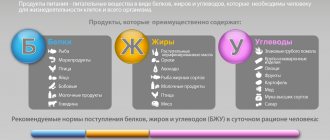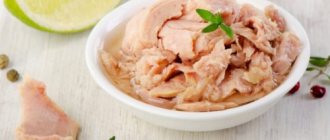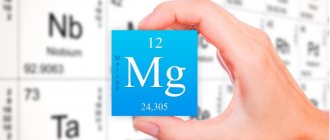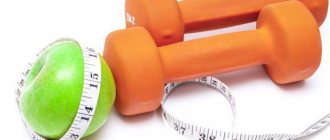The daily need for iodine is small and is calculated (mcg), so we classify iodine as a microelement. However, its significance is HUGE!
The main role of iodine in the human body is the formation of thyroid hormones, the objects of which are all cells.
Functions of thyroid hormones
- They regulate the processes of growth and development, activate transcription and differentiation of cells, regeneration of all tissues of the body, which is important during the formation and development of the fetal brain, the formation of intelligence, the development of the skeleton, and the reproductive system.
- They provide energy production, provide heat production, and increase basal metabolism by 30-50%.
- They regulate the work of more than 100 enzymes.
- Stimulates protein biosynthesis, producing an anabolic effect.
- Stimulate carbohydrate metabolism and fat breakdown, reduce blood cholesterol levels.
- Increases the formation of vitamin A in the liver from carotenoids.
- They enhance the effect of insulin, adrenaline, glucocorticoids, growth hormone, accelerating the growth of the child, stimulating the growth of tubular bones in length, affecting the metabolism of calcium and magnesium, increasing the mineralization of bone tissue.
- Strengthen adaptation processes under stress.
- Stimulate the function of the immune system, increasing antibacterial and antiviral immunity.
- Increases the activity of the central nervous system.
What is iodine
Iodine is the heaviest of the halogens and has increased volatility. Strong oxidizing agent. Toxic.
Absorption from food is 100%. Promotes the absorption of iodine - iron, calcium, copper, zinc, strontium, vitamin A and E.
Distribution: the human body contains 20-35 mg / 15-20 mg of iodine. Iodine actively accumulates (10-15 mg) in the thyroid gland - an “iodine pump” works, which extracts up to 40% / 17% of iodine from food. The thyroid gland should absorb 60 mcg of iodine per day. There are 400 mcg of iodine throughout the body.
Blood content . The level of iodine in the blood is constant, normally 10-15 mcg/l (250 mcg in total). During the day, 100-300 mcg of iodine enters the blood from the thyroid gland as part of hormones.
Selection . Iodine is eliminated from the body very quickly: the half-life is several hours. 90% of the iodine not captured by the thyroid gland is excreted in the urine.
Iodine interactions . Iodine antagonists are halogens: fluorine, chlorine, bromine, cobalt, manganese, lead - they reduce the iodine content in the body (fluorine - 8 times, bromine causes neurasthenia).
The effect of iodine on the human body
The effect of iodine on the human body is very great, although this microelement is consumed in very small quantities. About fifteen milligrams of iodine can accumulate in the body's reserve reserve. Iodine is found mainly in the thyroid gland. Absorption of the substance occurs in the walls of the small intestine. After a couple of hours, the microelement penetrates into the blood in sufficient quantities. Also, a small concentration of the described substance is found in the stomach, mammary glands, kidneys and liver. Iodine is excreted from the body through urine, sweat and saliva.
Why is iodine needed in the body? Experts call the following functions of a microelement:
- Relieves irritability and also helps improve performance.
- Controls the normal condition of curls, nail plates and skin.
- Normalizes hormones of the reproductive system.
- Controls body temperature at the proper level.
- It has a positive effect on the maturation of absolutely all organs during the embryonic period.
- Helps improve the condition of blood vessels, blocking the risk of circulatory disorders.
- Helps speed up the fat burning process. If a sufficient amount of iodine enters the body, then if you follow a dietary diet, the final result will not take long to wait.
- It is directly involved in the synthesis of red blood cells and affects the metabolic processes occurring in the bone marrow.
- Participates in the synthesis of the thyroid hormone - thyroxine, which is involved in RNA synthesis and improvement of metabolism, and is also responsible for ensuring that cells are saturated with the necessary amount of oxygen.
- Strengthens the immune system, maintaining the proper balance of substances that protect the body from various infections.
- Improves mental activity.
Iodine is very important for the human body. Therefore, your diet should regularly contain food sources containing the described substance.
Daily requirement
The body's daily need for iodine will differ depending on the age and general condition of the person. © https://ydoo.info/micro/yod.htmlSo, the norm of iodine in the human body should correspond to the following indicators (the volume of the substance is indicated in mcg):
- small children under two years old – 50;
- children from three to five years old – 60-90;
- children from six to eight years old – 90-120;
- children from nine to thirteen years old – 120;
- teenagers – 150;
- men – 180;
- women – 150;
- pregnant women and nursing mothers – no more than 300;
- during the treatment period and during physical activity - up to 400.
As you can see, the daily intake of iodine in the body must coincide with the above concentrations so that a person can feel normal.
Causes and symptoms of iodine deficiency
Lack of iodine in the body, oddly enough, is a widespread phenomenon. Medical officials say that more than a billion of the world's population suffers from a deficiency of this substance, especially in areas located far from seas and oceans.
A lack of iodine in the body in both women and men can occur if there are food sources containing less than 10 mcg of iodine.
The causes of iodine deficiency in the body may be the following factors:
- thyroid diseases;
- increased radioactive levels in the region;
- predisposition to allergies;
- poor nutrition (deficiency will manifest itself in the absence of fish and seafood in the diet);
- consumption of foods that contain heavy metals such as calcium, bromine, chlorine, lead, which block the penetration of iodine into the human body;
- consumption of exclusively plant-based food sources (if the person belongs to the vegan group).
Symptoms of iodine deficiency in the body:
- high blood cholesterol levels;
- imbalance manifested at the hormonal level;
- excess weight;
- swelling of the limbs and face;
- decreased concentration;
- the appearance of apathy, fatigue, decrease in physical and mental activity;
- the appearance of goiter, sometimes Graves' disease occurs;
- problems with the digestive system;
- myxedema occurs in adults;
- in childhood, the volume of thyroid hormones may decrease.
Due to a lack of iodine in the body, a woman may have a disrupted menstrual cycle or be diagnosed with infertility (this happens very rarely), and a man is at risk of developing impotence.
Children with iodine deficiency in the body often get sick, eat poorly because they have no appetite, and get tired quickly after doing physical activity.
When the first symptoms of iodine deficiency appear, you need to immediately see a doctor so that he can prescribe treatment.
How to check iodine in the body? If you doubt whether you have a deficiency of this substance, you can check the level of iodine in your body at home. To do this, it will be enough to wet a cotton swab with an iodine alcohol solution and draw three stripes on your forearm, one of which will be thin, the other a little thicker, and the third will be the thickest. The next day, if you find that only a thin iodine strip has disappeared, it means that your body has enough of the described microelement. If only the thickest line remains on your forearm, then include iodine-containing foods in your diet. If all three stripes disappear, then immediately go to the doctor so that the specialist can prescribe you some kind of medicinal composition.
Metabolism of iodine in the thyroid gland
Biosynthesis of hormones:
- Iodine is absorbed by theriocytes of the thyroid gland.
- Oxidizes to molecular iodine.
- Binds to the amino acid terosine in the lumen of the follicle with the participation of the enzyme peroxidase
- It accumulates as part of a protein colloid, the main component of which is thyroglobulin (this is the iodine reserve in the thyroid gland - 90%).
- Enter the blood as needed.
Thyroid hormones are found in the blood in a free state (active form) and can be bound to protein (inactive form).
Increased blood levels of T3 (triiodothyronine)
- In case of hypothyroidism, this is compensation for iodine deficiency.
- In hyperthyroidism, it causes thyrotoxicosis.
Regulation of the production of thyrotropin-resizing hormone (hypothalamus)
Activation - before bed, at low temperatures, norepinephrine, estrogens.
Inhibition - nonspecific stress, glucocorticoids, growth hormone.
The role of iodine in our body
Before we answer the question about what the daily need for iodine is, we suggest talking about its benefits for our body. So, let's start with the fact that for the normal functioning of the body, the production of hormones is necessary. And this function is performed by the thyroid gland, which simply needs iodine to function.
Thus, we can conclude: iodine promotes the production of hormones responsible for:
How much iodine do you need?
Recommendations for iodine intake, mcg/day
| WHO, 2001, minimum | |
| Children 0-5 years old | 90 |
| The First 12 Months (1996) | 50 |
| Children 6-12 years old | 120 |
| Teens and adults | 150 |
| Elderly (1996) | 100 |
| Pregnant and nursing | 200 |
| NAS, USA, 2001 | |
| Children 0-6 months. | 110 |
| Children 7-12 months. | 130 |
| Children 1-8 years old | 90 |
| Children 9-13 years old | 120 |
| Teens and adults | 150 |
| Pregnant | 220 |
| Nursing | 290 |
| RF, 2008 | |
| Children 0-12 months | 60 |
| Children 1-3 years old | 70 |
| Children 3-7 years old | 100 |
| Boys 11-14 years old | 130 |
| Teenagers 14-18 years old | 150 |
| Adults | 150 |
| Pregnant (2nd half) | 220 |
| Nursing | 290 |
The pathological condition of the thyroid gland often requires a large amount of iodine consumed - 400-500 mcg.
Monitoring a person’s supply of iodine
| Index | RF | WHO 2004 target | |
| 1995-1999 | 2003-2005 | ||
| Level of iodine in urine, mcg/l | 79 | 88 | 100-200 |
| Proportion of families receiving iodized salt | 8-11% | 27,6% | More than 90% |
| Frequency of goiter in schoolchildren | 20-70% | 15-40% | Less than 5% |
Article 2 (Calculation of daily iodine intake)
A little about the purpose of iodine in the life of the body. Iodine is an integral part of thyroid hormones. Entering the body with food and water, iodine is actively captured by the thyroid gland from the blood and is used to form hormones that are involved in the development and regulation of: the psyche and nervous system, thyroid gland, cardiovascular system, gastrointestinal tract, reproductive function, skin and hair, musculoskeletal system. For the formation of a sufficient amount of hormones, a sufficient supply of iodine in the body is also necessary.
World medicine has recognized iodine deficiency as a major threat to human intelligence and development. It is a daily microdose of iodine that ensures a person’s ability to learn, determines the success of any activity and is the basis for the development of other abilities.
Each area has different iodine content in food and water. Almost throughout the entire territory of Russia there is an endemic iodine deficiency of varying severity. Iodine deficiency is most pronounced in mountainous and foothill regions (North Caucasus, Altai, Siberian Plateau, Far East). This is not the case all over the world. The average daily iodine consumption in different countries of the world is shown in table No. 1
Table 1. Average daily iodine intake in various countries.
| Country (literary source) | Average daily iodine intake, mcg/person/day | Range of average daily iodine intake, mcg/person/day |
| Australia (Eastman, 1993) | 200 | |
| Bulgaria (Gutekunst et al, 1992) | 20-60 | |
| Germany (Pfaff et al., 1995) | 76 | 55-100 |
| Denmark (Lamberg et al, 1993) | 300-350 | 300-687 |
| Spain (Muros et al, 1992) | 286,4-11344 | |
| Canada (Dussault, 1993) | 1000 | 60% - salt; 25% - dairy products |
| China (Hou et al, 1997) | 166 | 139-208 |
| Korea (Kim et al, 1998) (Moon et al, 1999) | 61-4086 1295-2744 (breastfeeding women) | |
| UK (Lazazus, 1993) (Nelson et al, 1985), (Lee et al, 1994) | 225 173 166 | Men in summer - 195, in winter - 306 Women in summer 126, in winter - 236 140-1000 |
| Poland (Gembick, 1993) | 125-250 | |
| Russia (MU 2.3.7.1064.01.2001) | 40-80 | |
| USA (Allegrini et al, 1983) (Pino et al, 1993) | 554 | 310-778 1 70-700 |
Based on the above data, it is clear that Russian residents need an additional source of iodine.
Iodine consumption standards. The daily iodine requirement depends on age and physiological state. The World Health Organization (WHO) recommends the following daily intakes of iodine:
Table 2. Physiological daily requirement for iodine (in micrograms)
| Groups of people | Iodine requirement in mcg/day |
| Children under one year old | 50 |
| Young children (2 to 6 years old) | 90 |
| Children from 7 to 12 years old | 120 |
| Young people (12 years and older) and adults | 150 |
| Pregnant women and during breastfeeding | 200 |
| Elderly people | 100 |
On average, iodine consumption in Russia is 40–80 mcg per day, with the recommended norm being 150 mcg per day, that is, 2–3 times lower than physiological needs. And if the recommended need for iodine during pregnancy is 200 mcg per day, then it turns out that pregnant women in Russia receive 2.5 - 5 times less iodine than needed. Thus, first of all, we need to take care of solving this problem for children, young people and, of course, pregnant women, that is, those on whom the intellectual and creative potential of the nation directly depends.
Everything is good in moderation! It must be remembered that iodine intake should be dosed. Excessive intake of iodine into the body, hundreds and thousands of times higher than recommended physiological norms, as well as iodine deficiency, can lead to the development of thyroid diseases. Over the course of a lifetime, a person consumes only 3-5 grams of iodine. This is about one teaspoon of this substance.
Ways to combat iodine deficiency. There are three options for iodine prophylaxis: mass, group and individual. The most effective is mass iodine prophylaxis, which consists of adding iodine salts to the most common foods (salt, bread, water). To implement this option, support at the legislative level is required. But over the past few decades, unfortunately, iodine prophylaxis programs have been practically curtailed. Therefore, Russol LLC wants to inform the population of Russia about how to solve the problem correctly and effectively.
As part of individual prevention, each person should choose an additional source of iodine for themselves. The most versatile is iodized salt.
Why salt? Because:
- almost everyone uses it;
- this is a cheap product that is available to everyone;
— salt is consumed in small quantities, so you can add more iodine to it than to other products;
— the cost of iodized table salt is practically no different from non-iodized salt.
Salt fortified with iodine is a safe food product.
Iodized salt is not a medicine that should be prescribed by a doctor. It does not contain pharmacological doses of iodine and is a common food product that is rich in iodine - such as seaweed.
Iodized salt is suitable for long-term storage, cooking and canning: iodine does not evaporate from it in large quantities, does not evaporate under the influence of temperature and does not change the taste or color of food. This is achieved thanks to a new standard for salt iodization - potassium iodate, a compound much more stable than iodide.
Iodine is necessary for a person throughout his life . As we have already found out, the daily intake of iodine for an adult is 150 mcg. The iodine content in iodized salt produced by Russol LLC is 40.0±15 mcg per gram of salt. With a maximum allowable salt intake of 10 grams, a person can receive up to 400 mcg of iodine per day. With a recommended salt intake of 5-6 grams - up to 200 mcg per day.
Thus, the use of iodized salt is an effective method of combating iodine deficiency. It is enough just to replace regular salt with iodized salt, and the Russian population will be able to prevent the development of thyroid diseases, maintain health and overcome the decline in intelligence.
Article 1 (On the problem of iodine deficiency in Russia)
Article 3 (Laboratory evidence)
Iodine content in food products
| Product | mcg of iodine per 100 g | % of TSA |
| Sea kale | 500-3000 | 300% |
| Cod liver | 370 | 247% |
| Squid, salmon | 200 | 133% |
| Shrimp, flounder | 190 | 73% |
| Cod | 135 | 90% |
| Sea bass | 60 | 40% |
| Vobla, pink salmon, chum salmon, flounder, salmon, tuna, | 50 | 33% |
| Mackerel | 45 | 30% |
| Herring | 40 | 27% |
| Chicken egg yolk | 33 | 22% |
| Chicken egg | 20 | 20% |
| Oats | 20 | 20% |
| Champignon | 18 | 12% |
| Pork | 16,7 | 11% |
| Broccoli | 15 | 10% |
| Beans | 12 | 8% |
| Beef | 11,5 | 8% |
| Hard cheeses | 11 | 7% |
| Durum wheat | 11 | 7% |
| Pistachios, peas | 10 | 7% |
| Milk, kefir, yogurt | 9 | 6% |
| Rye, barley | 9 | 6% |
| Barley, soybeans, grapes | 8 | 5% |
| Cabbage, carrots, beets | 6,5 | 4% |
| Radishes, lettuce, peas, green onions | 5 | 3% |
| Apples, fruits | 2 | 0,1% |
On average, a person receives 70-75 mcg of iodine per day from plant foods, 35-40 mcg from animal foods, and 5 mcg of iodine from water.
What foods contain iodine?
The daily dose of iodine for humans is available through the consumption of the following products (for every 100 g):
- feijoa - 80-300 mcg;
- cod liver - 400-800 mcg;
- seaweed - 200-300 mcg;
- squid - 150-200 mcg;
- hake, pollock, haddock - 140-150 mcg;
- cod - 120-135 mcg;
- shrimp - 88-95 mcg;
- perch - 50-60 mcg;
- capelin, catfish, flounder, tuna, catfish - 40-50 mcg;
- see full list
Use iodized salt. But don't let it get too hot. In this case, the iodine evaporates, so the food must be salted at the end of cooking .
Important: Do not consume iodine with milk. A drop of iodine contains 6000 mcg, which is 30-40 times more than the daily requirement. Result: the thyroid gland is blocked.
What is iodine deficiency?
The term “Iodine deficiency disease” was introduced by WHO in 1983, replacing the diagnosis of “goiter”.
Diseases associated with iodine deficiency
- Diffuse, non-toxic (euthyroid) goiter.
- Nodular euthyroid goiter.
- Functional autonomy of the thyroid gland.
- Iodine deficiency hypothyroidism - with severe iodine deficiency.
According to WHO, more than 2 billion people live in conditions of iodine deficiency, among whom 740 million have endemic goiter, 43 million suffer from mental retardation, and 6 million suffer from cretinism (a form of mental retardation).
In the Russian Federation, 100 million people live in regions with iodine deficiency, and iodine intake is 40-80 mcg/day.
Iodine deficiency severity criterion
| Criterion | Severity of iodine deficiency | |||
| norm | light | average | heavy | |
| Iodine content in urine, µg/l | > 100 | 50-99 | 20-50 | < 20 |
| TSH in blood, mU/l | < 3,0 | 3,0-20 | 20-40 | >40 |
| Thyroglobulin in the blood, ng/ml | < 10 | 10-20 | 20-40 | >40 |
Iodine deficiency diseases
Prenatal period of life:
- Miscarriages and stillbirths, risk of fetal death.
- Congenital malformations.
- Neurological cretinism: dementia, strabismus, deaf-muteness.
- Myxedema cretinism: hypothyroidism, dwarfism, dementia.
Newborns:
- Goiter of newborns.
- Congenital hypothyroidism.
Children and teenagers:
- Juvenile goiter (diffuse and/or nodular).
- Juvenile hypo- or hyperthyroidism.
- Impaired mental or physical development.
- Delayed puberty.
Adults:
- Goiter and its complications.
- Hypothyroidism.
- Decreased memory, intelligence, and creative potential.
- Menstrual irregularities, female infertility.
- The risk of having a child with cretinism.
- Risk of developing fibrocystic mastopathy.
- Decreased potency and infertility in men.
- Risk of thyrotoxic (autonomous) adenoma.
- Risk of nodular toxic goiter.
- The risk of developing thyroid cancer is only in the presence of nodular goiter.
- Acceleration of the development of atherosclerosis, risk of early aging.
All ages:
- Increased uptake of radioactive iodine.
- Decreased intelligence and creativity.
What is hypothyroidism?
Hypothyroidism is a persistent (long-term) lack of thyroid hormones in the body.
Causes of hypothyroidism
Primary hypothyroidism is 99% damage or disorder of the thyroid gland.
- Disorder of intrauterine development of the thyroid gland - congenital.
- Injuries and reactions, treatment with iodine isotope, irradiation of the thyroid gland
- Autoimmune thyroiditis is an atrophic form.
- Viral infection of the thyroid gland.
- Endemic goiter due to iodine deficiency (less than 20-25 mcg/day) - 90-95%.
Clinical symptoms: increased volume of the neck, sensation of a lump in the throat, difficulty swallowing, hoarseness, frequent coughing, irregular heart rhythm.
Often diffuse or even nodular changes in the thyroid gland do not lead to an increase in its function.
Secondary hypothyroidism is a dysfunction of the pituitary gland.
- Decreased production of thyroid-stimulating hormone (TSH) in the pituitary gland or production of inactive TSH, as well as disruption of the TSH receptor in the thyroid gland.
Tertiary hypothyroidism is a disorder of the hypothalamus.
- Decreased or impaired production of thyroid hormone-releasing hormone (TRH) in the hypothalamus.
Health Benefits of Iodine: 10 Important Functions
Iodine has many therapeutic uses and provides many benefits, no matter your age.
Iodine's most important function for health, through thyroid hormones, is brain development from childhood, but iodine also plays a role in heart, kidney, and liver health throughout life.
Below are the top ten health benefits iodine offers.
- Helps form thyroid hormones
- Support fetal and child brain development
- Promotes mental health
- Boosts metabolism and energy
- Stimulates the immune system
- Creates healthy skin and nails
- Removes harmful halogens
- Counteracts radiation
- Required for first aid
- Helps improve women's health
Iodine is beneficial for the production of thyroid hormones
The number one role of iodine in the body is the production of thyroid hormones. As a result, most of the iodine in the body is concentrated in the thyroid gland.
The pituitary gland secretes thyroid-stimulating hormone (TSH), which tells the thyroid gland how much T3 and T4 to produce.
Stress can increase TSH production, which affects how much T3 and T4 are produced, affecting metabolism.
The hypothalamus, a gland in the brain, produces thyrotropin-releasing hormone (TRH) which also affects the production of thyroid hormones. Providing a healthy diet of iodine is essential for a healthy thyroid gland.
2. Essential for brain development in childhood
According to the World Health Organization, iodine deficiency is one of the leading causes of preventable mental and intellectual disabilities worldwide.
Pregnant women need more iodine than usual because this mineral is essential for the proper development of the unborn baby's brain. A breastfeeding woman needs even more iodine to ensure she and her baby have enough iodine.
Even in the United States and other developed countries, many pregnant women are iodine deficient, which can reduce a child's IQ and mental abilities.
The most critical phase of brain development is during pregnancy, infancy and childhood, but iodine supports healthy brain function throughout life.
Benefits of Iodine to Support Mental Health Throughout Life
Iodine and thyroid hormones play an important role in maintaining brain function, including mental health and mood.
Some studies have linked developmental conditions such as ADHD and autism to low iodine levels during pregnancy or childhood.
Doctors are increasingly understanding the role of using nutrition to promote mental health because of the connection between the gut, mental health and immune system.
The role of the thyroid gland in adult mental health remains unclear, but given the critical role of iodine in brain development, ensuring adequate nutrition for overall mental health is a good idea.
Iodine is useful for increasing metabolism and energy
The thyroid gland controls metabolism, which leads to sluggish feelings, brain fog and low energy. Low iodine levels, genetics, and other conditions can cause hypothyroidism.
Consequences of hypothyroidism
- Constant feeling of chilliness (lack of energy).
- Increase in body weight with unchanged nutrition (decrease in basal metabolism).
- Headaches, often pain in muscles, joints, numbness of the hands.
- Swelling of the limbs, swelling of the face - the face resembles a frozen mask.
- Skin: dry, cold, pale yellow.
- The voice becomes rough, low, speech becomes slow, slurred, often snoring in sleep.
- Difficulty in nasal breathing and hearing loss.
- Hair loss and fragility, brittle nails.
- Half of the patients have a slow pulse.
- Pain when walking - intermittent claudication (oxygen deficiency).
- Slow digestion, frequent constipation, hypotension of the gallbladder.
- Decreased sexual desire and potency, cycle disorder.
- Slowness of movements, mental retardation, decreased memory, attention, drowsiness, depression.
- Tendency to frequent infections (decreased immunity).
What is thyrotoxicosis?
Thyrotoxicosis is an increase in the production of thyroid hormones T3 and T4.
Causes of hyperthyroidism
- Diffuse or nodular toxic goiter (Graves' disease, Graves' disease) is an autoimmune disease (80%).
- Hashimoto's autoimmune thyroiditis is a hypertrophic form.
- Functional autonomy of the thyroid gland - nodular toxic goiter, thyroid adenoma.
- Pituitary tumor - increased TSH production.
- Congenital thyrotoxicosis is a mutant TSH receptor.
- Trophoblastic thyrotoxicosis is the production of TSH by the trophoblast during pregnancy.
- Production of thyroid hormones outside the thyroid gland - metastases, ovarian struma.
- Destruction of the thyroid gland - with an increase in the release of thyroid hormones into the blood.
- Excess of thyroid hormones introduced from outside - L-thyroxine.
- Excessive intake of iodine into the body.
Graves' disease is never observed in people living in iodine-supplied regions.
A normal thyroid gland copes with a moderate excess of iodine using autoregulation mechanisms, but when the thyroid gland becomes enlarged, these mechanisms stop working.
The mechanism of development of thyrotoxicosis with iodine deficiency
Iodine deficiency in diet:
- The production of TSH increases, which stimulates the thyroid gland.
- Activates proliferation stimulators (cell division) and growth factors: interleukins, insulin-like growth factor 1 (IGF-1), epidermal growth factor (EGF), inositol triphosphate (a powerful proliferation factor).
- The more the iodine content in food decreases, the more the activity of growth factors increases, which leads to an increase in the number of cells and size of the thyroid gland. Goiter formation occurs as a result of activation of growth factors in the thyroid gland.
- With prolonged iodine deficiency, the regulatory mechanisms that support the functioning of the thyroid gland are depleted, which leads to the formation of nodules and the formation of nodular toxic goiter.
- Long-term iodine deficiency in food increases the risk of mutations that are aimed at the formation of cells with higher activity - they increase the formation of thyroid hormones - T3 and T4, which leads to the formation of diffuse or nodular goiter with increased functional activity of the thyroid gland and uncontrolled increased production of thyroid hormones .
With a normal concentration of iodine in the diet, TSH does not stimulate enlargement of the thyroid gland.
Excess iodine in diet:
- Blocks the synthesis of thyroid hormones and stimulates the formation of thyroid cell growth blockers and, possibly, other growth factors - reducing the risk of developing cancer.
Iodine deficiency: signs and features of the process
When there is little iodine intake, the ratio of T3 and T4 changes. The brain requires T4, and if there is a lack of iodine, little of it is supplied. If a person lives where there is a deficiency, then it is impossible to obtain this substance from food (or there is little of it, or it is quickly destroyed).
With iodine deficiency, goiter occurs. Time passes from the beginning of the lack of this element to the appearance of a goiter. When the deficiency is minimal, signs of deficiency are: memory impairment, decreased intelligence, and an increase in the size of the thyroid gland. In women, reproductive capacity suffers. The likelihood of miscarriages, perinatal mortality and stillbirths increases.
Goiter is an enlargement of the thyroid gland (its function is not impaired). If the thyroid gland is not treated, it increases by 5% or more. When the disease progresses, it no longer obeys regulatory functions; hormones are released at their own rhythm. In this case, surgery is indicated.
1.5 billion people are at risk of developing diseases associated with iodine deficiency. Of these, 0.5 billion have signs of diseases that appear due to shortages.
Result of deficiency
- Irritability, lethargy, drowsiness, melancholy without arguments, memory, IQ level and concentration decrease.
- Arrhythmia, medications do not help, pressure increases due to swelling of the vessel walls. Atherosclerosis develops, which is resistant to treatment with drugs and diet.
- Hemoglobin levels decrease, iron supplements help little.
- Immunity suffers. Weak protective functions of the body occur even when thyroid function is minimally reduced. The body has little resistance to infections, frequent colds occur, and chronic diseases worsen.
- The menstrual cycle is disrupted, infertility, mastopathy occurs, nipples become irritated and crack.
- Swelling appears around the eyes; taking diuretics does not help, but worsens the condition. Dependence on diuretics occurs.
- Bone growth slows down and the body's growth process is disrupted.
Individual deviations also occur in people of different ages:
- Adults. In women, the menstrual cycle is disrupted, infertility, mastopathy occurs, nipples become irritated and crack.
- Children and teenagers. Difficulties and developmental delays. Memory and intelligence suffer, mental, physical and mental development worsens.
- Aged people. Metabolic disorders occur, immunity decreases, headaches and irritability, obesity, atherosclerosis, and inflammatory processes in the respiratory tract occur.
Signs and consequences of hyperthyroidism
- An enlarged thyroid gland is a goiter (10% do not have an enlarged thyroid gland).
- Constant feeling of heat, thirst, severe sweating (increased body temperature).
- The patient loses weight while maintaining nutrition and good appetite.
- The skin is warm and moist.
- Hair is thin, brittle, turns gray early, and falls out easily.
- Increased brittleness of nails.
- The face is pale, but quickly turns red, there is an expression of fear on the face, and when the gaze is fixed, there is an “angry look.”
- Protruding eyes, shiny eyes, rare blinking, swelling of the tissues around the eyes - “bulging eyes”, feeling of sand in the eyes, photophobia, lacrimation, swelling of the eyelids.
- Irritability, conflict, quarrelsomeness, aggressiveness, fussiness, tearfulness, rapid mood swings, unreasonable fears.
- Absent-mindedness, decreased concentration, weakness, insomnia, dizziness, and headache are common.
- Fine trembling of the fingers of outstretched arms, handwriting becomes uneven and illegible.
- Unstable chair. Impaired liver function with the development of jaundice (increased bilirubin).
- Heart damage - heart flutter and interruptions in work - arrhythmias (in 15-40%), cause heart failure.
- Increased blood pressure, increased blood viscosity, risk of thrombosis.
- Muscle weakness increases.
- Decreased potency and enlarged mammary glands in men.
What is iodine intoxication?
Iodine poisoning - iodism. Occurs when consuming medications containing iodine or coming into contact with iodine. Poisoning can also be induced by excess dietary iodine intake.
A daily dose of iodine is considered safe - 500 mcg.
Excess iodine can, on the one hand, increase the production of thyroid hormones, and on the other, inhibit the function of the thyroid gland. Why this happens is unknown.
Many people regularly take huge doses of iodine - from 10 to 200 mg per day without any side effects (the antiarrhythmic drug Cardarone contains 75 mg of iodine). But do not abuse excessively high doses of iodine!
Signs of iodine intoxication
- Cough, runny nose, watery eyes, drooling (swelling of the salivary glands).
- Hoarseness of voice, pain and burning in the throat, thirst.
- Headache, dizziness, lethargy.
- Iododerma - skin lesions (on the face, neck, limbs), itchy acne, urticaria, rubella, erysipelas often appear, and upon contact with crystalline iodine - burns and ulcers.
- Eye damage: blepharitis and conjunctivitis, eyelash loss, decreased visual acuity, cataracts.
- Metallic taste in the mouth.
- Bad breath when breathing.
- Periodic nausea, vomiting.
- Pain in the right hypochondrium, yellowness of the skin (liver damage).
- Respiratory tract: frequent colds, sore throats, pneumonia and other infections.
Excess iodine: features and symptoms
In addition to iodine deficiency, there is also its excess. In hyperthyroidism, iodine levels increase.
The thyroid gland does not enlarge, but Graves' disease occurs with tachycardia, exophthalmos, and goiter. Increased sweating and muscle weakness occur. Hypertemia, skin dystrophy, graying, skin depigmentation, and muscle atrophy appear. Also symptoms of iodine excess are:
- ulcers on the skin;
- nausea, vomiting;
- headache;
- conjunctivitis;
- fever;
- joint pain;
- stomach upset;
- sleep disturbance;
- high level of excitability;
- severe weight loss;
- cough, runny nose.
Use of iodine in nutrition
Where can you find iodine
When producing iodized salt, 4 mg of potassium iodate (KJO3) is added per kilogram - stable (stays for 9-12 months), potassium iodide KJ - unstable (stays for 3 months).
1 g of salt contains 40 mcg of iodine. It is believed that the average person consumes about 1 teaspoon of salt. If about half of the iodine is lost during cooking, we will receive approximately 150 mcg of iodine.
In iodine-poor regions, it is necessary to use iodized salt 7.5 mg/kg of salt, with a daily intake of 5 g of salt.
One stool tincture of iodine contains 5000 mcg of iodine - 25 times more than what a person needs per day. You can dilute 1 drop of iodine in a glass of water (200 ml), take 5 ml - 1 teaspoon (125 mcg of iodine).
How much iodine is in NSP products?
| NSP products | TSA, % | multiplicity | in total | |
| Iodine (150 - 300 mcg) | ||||
| Kelp | 200/500 | 133% | 1 x 1 | 200/500 |
| Super Complex | 75 | 50% | 1 x 1 | 75 |
| Smart Mil (34 mg) | 52,5 | 35% | 1 x 1 | 52,5 |
| TNT (19 g) | 22 | 15% | 1 x 1 | 22 |
| hsn | 9,3 | 18% | 1 x 1 | 9,3 |
| Vitasaurians | 1,4 | 6% | 1 x 1 | 1,4 |
Regularly eat seafood that is rich in iodine! Breathe sea air that contains iodine!
Iodine consumption should be regular - daily and multiple times (several times a day), if your thyroid function is not increased!
Recommendations of Ph.D. nutritionist Yury Aleksandrovich Lysikov
The full recording of the material on the topic “The importance of iodine in nutrition and NSP products” can be listened to below:










